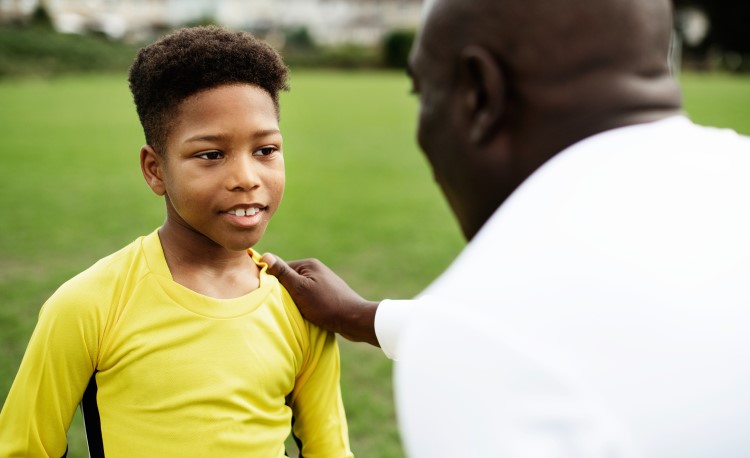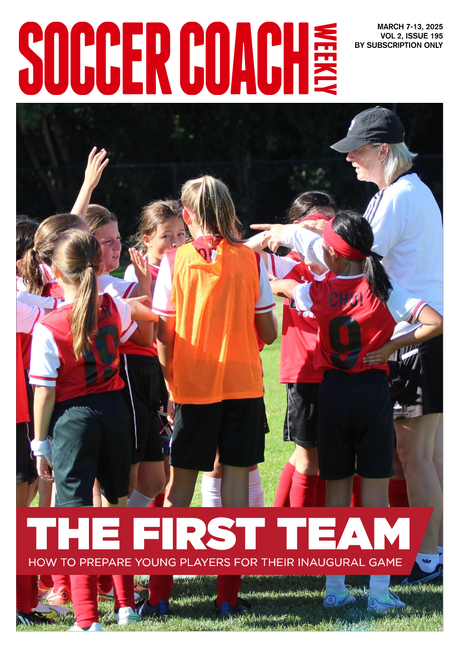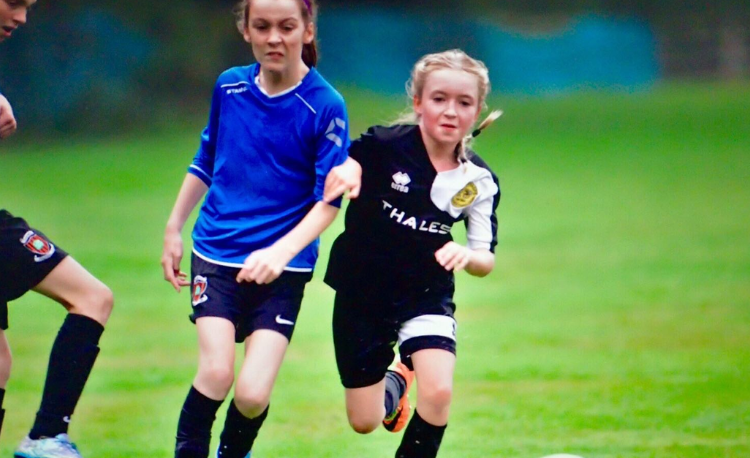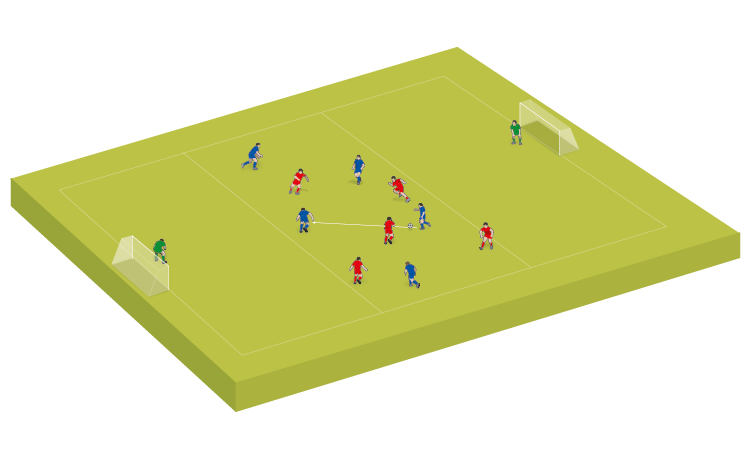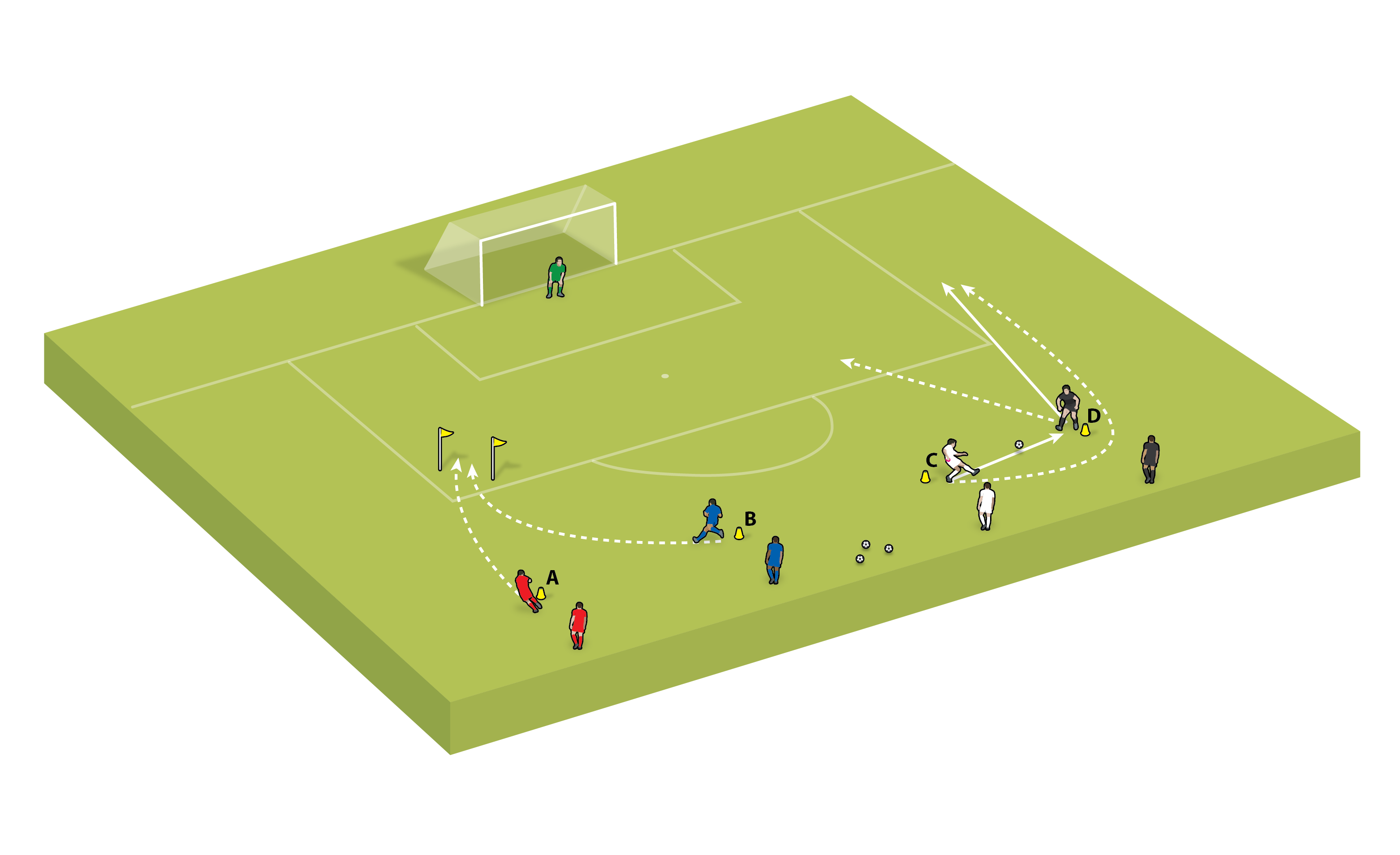Understanding the children we coach
A specialist in developmental behavior and a youth soccer coach, Dr Kristin Bird tells Sam Snow how blending her expertise gets the best out of children.
Dr. Kristin Bird, D.O., is a former college soccer player and now a developmental behavioral pediatric fellow at Vanderbilt University Medical Center in Nashville, USA.
Dr Bird is also a staff coach in the girls’ academy at Tennessee Soccer Club, where she works with the U8s-U11s, and is a board member for Awesome Kids Inc., a non-profit organization serving children with special needs through recreational and social activities.
She currently holds the 7v7 and 9v9 Grassroots Licenses through US Soccer and is pursuing further coaching licenses.
Dr Bird caught up with Sam Snow, her sister, to discuss the intersection between her doctor and coaching roles and her advice for coaches working with children with different abilities.
SS: Can you explain briefly what developmental behavioural pediatrics is?
KB: Developmental behavioral pediatrics is a unique specialty in pediatric healthcare.
I work with kids everyday who have a variety of behavioral or developmental concerns, including autism, ADHD [attention deficit hyperactivity disorder], Down’s syndrome and cerebral palsy.
I provide assessments for children to give diagnoses and then work with families to come up with a plan to support the child so that they can reach their highest goals.
I also work with other providers and specialists – such as psychologists, physical therapists, occupational therapists, speech therapists, neurologists and nurse practitioners – to provide the best care possible to children.
SS: What is your background in soccer?
KB: I grew up around soccer. By the time I started playing, the soccer field felt like home.
I played competitively as a goalkeeper through high school and then attended college with a plan of playing all four years.
But, after an injury, I decided to step back from playing, halfway through my sophomore year.
SS: So you then started coaching? Was that something you always planned on doing after playing?
KB: I won’t say coaching was something I necessarily planned on doing, but, to me, coaching went hand-in-hand with playing.
I started as a volunteer coach for U6 recreational players while I was playing in middle school. I would help with summer camps throughout high school, and then, into college, I started not only coaching youth summer camps, but got back into coaching youth summer leagues.
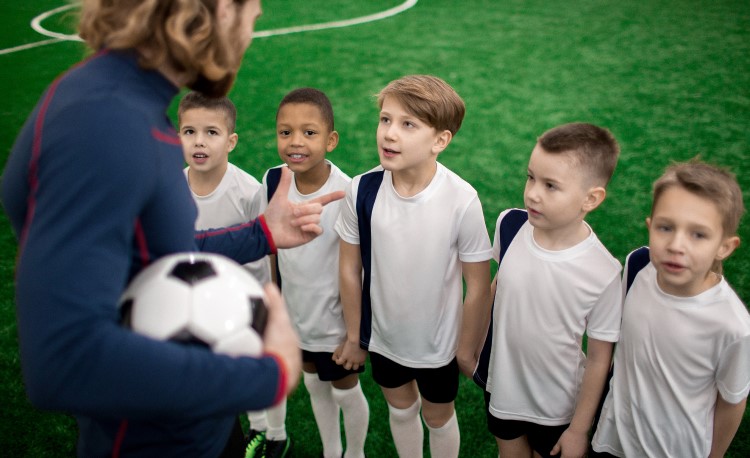
After graduating college, I had a year before I started medical school and spent that time coaching recreational teams of various age groups and was a goalkeeper trainer for academy and select-level players.
Unfortunately, after starting medical school, I had to put coaching on the back burner. I have been lucky that, recently, I have been able to start coaching again and have been reminded of how much I enjoy it.
SS: How does your philosophy as a doctor affect your philosophy as a coach?
KB: I think that. as a pediatrician and a soccer coach, my role is very similar. I am there to provide guidance and direction in an area I am trained to support kids and their families in.
In both roles, families trust me to provide the highest level of care or training that I am able to, to help kids grow and develop.
I think my doctor and coach roles have influenced each other. I can definitely appreciate that my role as a pediatrician has taught me so much about how kids think and how their brains and bodies develop that it helps me as a coach better understand what level the kids are ready for on the field.
This also helps in developing training sessions when I know I am not going to be able to keep my six- and seven-year-old players’ attentions for very long.
Understanding what is developmentally appropriate for children helps me keep perspective and create the best learning environment for the players.
SS: What advice would you give to those coaching a child with different abilities? What about just coaching children in general?
KB: I think the biggest thing I would tell any coach who works with kids is that you will have players with different abilities.
"A kid misbehaving may have ADHD and their medication may have worn off..."
The kids I work with every day as a physician do not often have outward signs of their ‘superpowers’, so be aware that those kids I see in the clinic may be on your team.
A kid who is misbehaving at practice may have ADHD and their medication may have worn off before practice.
Break instruction down in smaller chunks to help them remember and give them plenty of breaks to help with their attention.
The kid asking ‘why?’ all the time may have a processing disorder. They may not be able to understand what you are trying to explain. Having different approaches and methods to teaching is key.
It is important to also remember that kids without superpowers like autism or ADHD also learn in different ways; some kids may be able to understand what you want just by talking about it, others may need to see something before they understand.
The job of the coach is to be adaptable and be able to help each child with their specific needs.
SS: What is the most impactful lesson you have learned throughout your coaching journey and your medical journey?
KB: I think some of the most impactful lessons come from the least expected places.
Recently, I have had some self-doubt about my abilities as a coach - but every time I step out on the field, I see my players grow not just in skill, but in their love of the game. It continues to give me energy and renews the faith I have in my own abilities.
The same goes with medicine. You learn more in times when you are not expecting to learn.
I had a patient that I took care of during my first two years as a pediatrician in the hospital. This patient had a very aggressive form of pediatric cancer called Ewing sarcoma.
Despite going through chemotherapy, radiation and surgeries, they never lost their smile and was the most positive person. I would sit with them and talk with them when they were admitted.
I look back at those times and realize what they taught me: be invested in your patients. Be invested in your players.
Related Files
Newsletter Sign Up
Coaches Testimonials

Gerald Kearney, Downtown Las Vegas Soccer Club

Paul Butler, Florida, USA

Rick Shields, Springboro, USA

Tony Green, Pierrefonds Titans, Quebec, Canada
Subscribe Today
Discover the simple way to become a more effective, more successful soccer coach
In a recent survey 89% of subscribers said Soccer Coach Weekly makes them more confident, 91% said Soccer Coach Weekly makes them a more effective coach and 93% said Soccer Coach Weekly makes them more inspired.
*includes 3 coaching manuals
Get Weekly Inspiration
All the latest techniques and approaches
Soccer Coach Weekly offers proven and easy to use soccer drills, coaching sessions, practice plans, small-sided games, warm-ups, training tips and advice.
We've been at the cutting edge of soccer coaching since we launched in 2007, creating resources for the grassroots youth coach, following best practice from around the world and insights from the professional game.
